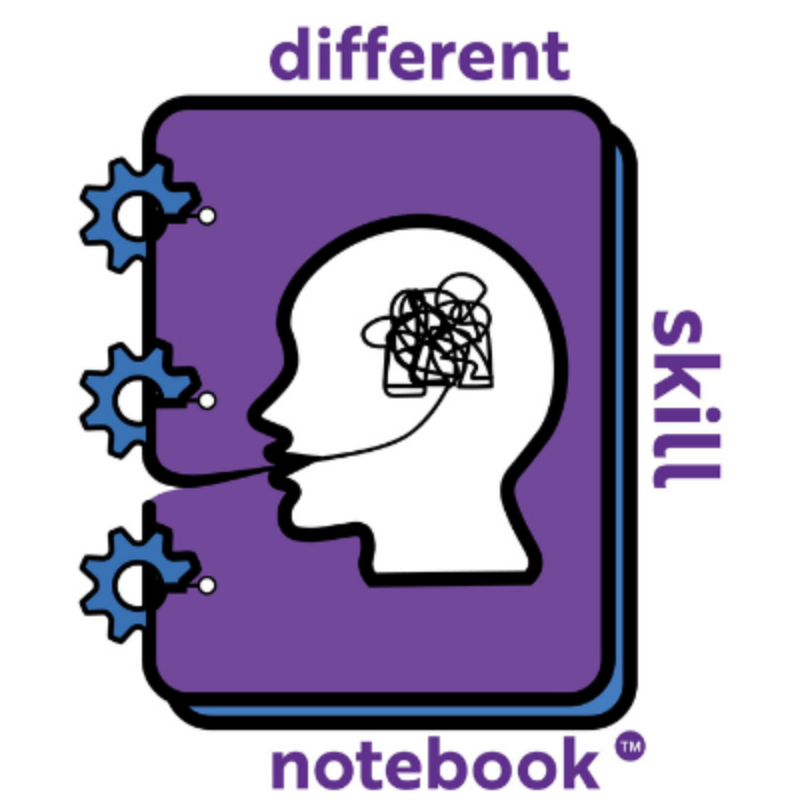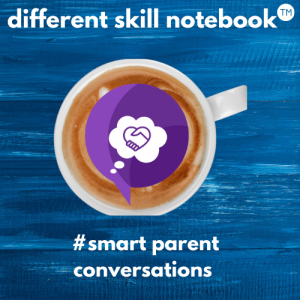
1.7K
Downloads
33
Episodes
The Social Mind Center presents the ”different skill notebook” a tool that provides strategies to build social-emotional skills resulting in social competency. Since March our world has experienced many changes with the COVID pandemic. Change is the new constant in our daily lives. Requiring us to be adaptable and adjust to the changes daily. The different skill notebook is a life curriculum for you to equip your child with the skills to communicate, connect, and build relationships for life. We want our children to have success beyond academics by acquiring skills to adapt, cope, self-manage and find purpose in life.
Episodes

Tuesday Oct 13, 2020
Flexible Parenting
Tuesday Oct 13, 2020
Tuesday Oct 13, 2020
Flexible Parenting
Strategies
Welcome to the Different Skill Notebook! We have a very special guest today Paula Mancino. Paula is an extraordinary client, an amazing teacher, writer, editor, and supermom.
Her message today is as parents we need to have skills that our child needs to acquire and build. If we have the same weakness or fail to acknowledge our skill limits our parenting is hampered. One of the most effective teaching strategies is modeling. Paula, wants to share her strategies and processes to increase her son's cognitive flexibility.
Skill: Parent cognitive flexibility
Some important factors to consider when teaching flexibility.
1. Flex with and for your child:
- Being able to flex with my child who has learning differences has its challenges.
-
- He often may not hear what I say
- He often gets stuck on a preferred task or topic. It's like pulling teeth to get him unstuck and to transition to the next task
- I have control issues and if I'm tired, pressed for time and anxious I end up applying pressure which results in him resisting transition even more
- Why flex and keep calm?
- What I have learned through much trial and error is no matter what the circumstances if I can keep my composure he gets unstuck/flexes much faster and is willing to move on to the next task
- If I cannot flex with his being stuck, now we both stay stuck, he digs his heels in and I yell. Not a pretty situation and unless I reset my tone one of us meltdowns.
Strategies:
1. Be aware of whether you have your child's attention (eyes). Can they hear you and see you.
2. Set Timer: when my child is engrossed I set a timer to remind him to transition and it also allows him a minute to stop, get unstuck. It is very difficult for him to walk away from something unfinished.
Note wiring! By being aware that the lack of flexibility is rooted in a neurological difference and not defiance helps to manage the situation. Cognitive inflexibility is the inability to shift mindsets/transition and is frequently perceived as opposition.
3. Be aware of your frustration level and expectations.
- Walk away if your frustration level is high. If you are both in a situation where compromise is challenging its best to take a break.
- Adjust and edit your expectations. Expect the unexpected. And be open to that assignment may take longer than expected.
- Embrace your child's weaknesses and strengths. Allow the room and time to work on the challenges. Do not dismiss or overlook the difficulty in completing the task or in the skill area.
Some closing comments avoid:
- micromanaging and allow your child to create their own process.
- comparisons to other children and their performance will not help you or your child.
- thinking too far into the future and stay in the present paying attention to immediate priorities
- inconsistency since building skills requires consistent repetition.
Thank you for joining us on our different skill notebook podcast.

No comments yet. Be the first to say something!